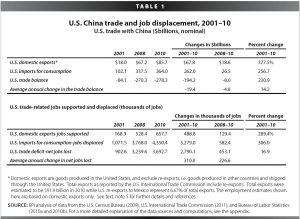Friday Morning: Mi Ritmo
Oye como va
Mi ritmo
Bueno pa gozar
Mulata— excerpt, Oye Como Va by Tito Puente
This Latin jazz song was on the very first album I owned — Santana’s Abraxas. I have no idea what possessed my father to select this way back in 1971 because he’s not musically inclined. I prefer to think he was persuaded by the music store staff to buy it for me rather than think the cover art did it for him. To this day I don’t dare ask; I’d rather live with my illusion.
Perhaps he simply liked Oye Como Va by Tito Puente and decided I needed it. Maybe that’s what he wanted to listen to when I played the album over and over again, ad nauseam. The song is still easy to listen to even when played by a septuagenarian, isn’t it? Though Puente probably still felt the same way about this song in his last live performance as he did when he first recorded it in 1963.
The personal irony I’m certain my father never considered: the last line is a reference to a mixed race “mulatto” woman. That’s me.
Vamos, amigos!
Wheels
- South Korea frustrated by Volkswagen’s response to Dieselgate (Yonhap) — Hard to tell how many VW passenger diesel cars with the emissions controls defeat tech have been sold in South Korea to date. Last year’s sales of 35,700 suggest VW needs to exert itself a little more than offer to recall a total 125,000 cars.
Technology Trends
- Breakthrough in memory technology could change computing dramatically (IBM via YouTube) — I’m still trying to wrap my head around this; could be the simplicity of the underlying science seems so obvious I can’t understand why it wasn’t discovered sooner. Using polycrystalline rather than amorphous material, more data can be stored and in a manner which is stable and not prone to loss when electricity is cut. This technology could replace DRAM at flash memory prices. Imagine how quickly systems could begin processing if they could avoid seeking programs and data.
- Google’s annual I/O event chary on enterprise computing (ComputerWorld) — Wonder if Google executives’ expressed intent to focus on the enterprise is a veiled threat directed at Oracle? The I/O annual conference didn’t have enough enterprise applications to satisfy the curious; is Google holding back? Or are there pending acquisitions to fill this stated intent, ones not yet ready for publication? I wouldn’t be surprised to see Google launch something on par with Salesforce or Zoho very soon. Google Drive components already compete with or are integrated with some of those Zoho offers in its small business offering.
- Android’s coming to Chromebooks — finally! (Google Blog) — I’ve put off buying another laptop until this happened, guess I’ll look at the first three models on which developers will focus their development. The applications available for Android phones have been mind-boggling in number; it’d be nice to have the same diversity of selection for laptops. And then maybe desktops in the not-too-distant future? That would really make a dent in enterprise computing.
Cybersec
- Security camera not password protected? Police may be able to tap it (Engadget) — Love the subhead: “Don’t worry, it’s supposed to be for a good cause.” Just add the invisible snark tag. Purdue University researchers found surveillance cameras could be tapped to allow law enforcement to monitor a crime scene. I don’t know about you but this sounds like a backdoor, not a convenient vulnerability. If the police can use it soon, who might already be using it?
- Qualcomm mobile chip flaw leaves 60% of Android devices exposed (Threatpost) — Not good, especially since this boo-boo may affect both oldest and newest Android versions. But a malicious app is required to take advantage of this flaw, unlike the Stagefright exploit. Android has already issued a patch; the problem is getting it to all affected devices.
- LinkedIn’s 2012 breach yielded info on more than 100 million accounts (Motherboard) — Only 6.5 million accounts were initially breached — but that’s only the first batch published online. The actual haul from 2012 was at least 117 million accounts, now for sale for a mere five bitcoins or $2200. Are you a LinkedIn user? Time to check Have I Been Pwned? to see if your account is among those in the breach.
Climate Crises
- Record high temp of 51C (124F) recorded in India (The Register) — Drought continues as well; article notes, “Back in India, relief from the heat is expected when the annual monsoon hits. The cooling rains generally arrive in mid-June.” Except that with a monster El Nino underway, the amount of rain and cooling will depart from average.
- Polymath Eleanor Saitta considers climate change and comes to some grim, mortal conclusions (Storify by @AnthonyBriggs) — If you’re a policymaker, you’d better worry about dealing effectively with climate refugees and deaths in the millions. Maybe billions. Refugees from Syria will look like a minuscule blip. If you’re not terrified, you should be.
Looks like it’s going to be a lovely late spring weekend here — hope you’re going to have a nice one, too. See you Monday!

![[graphic: Google Finance]](http://www.emptywheel.net/wp-content/uploads/2013/07/Graph_MSFT_10-YrChart_18JUL2013_500pxw1.jpg)
